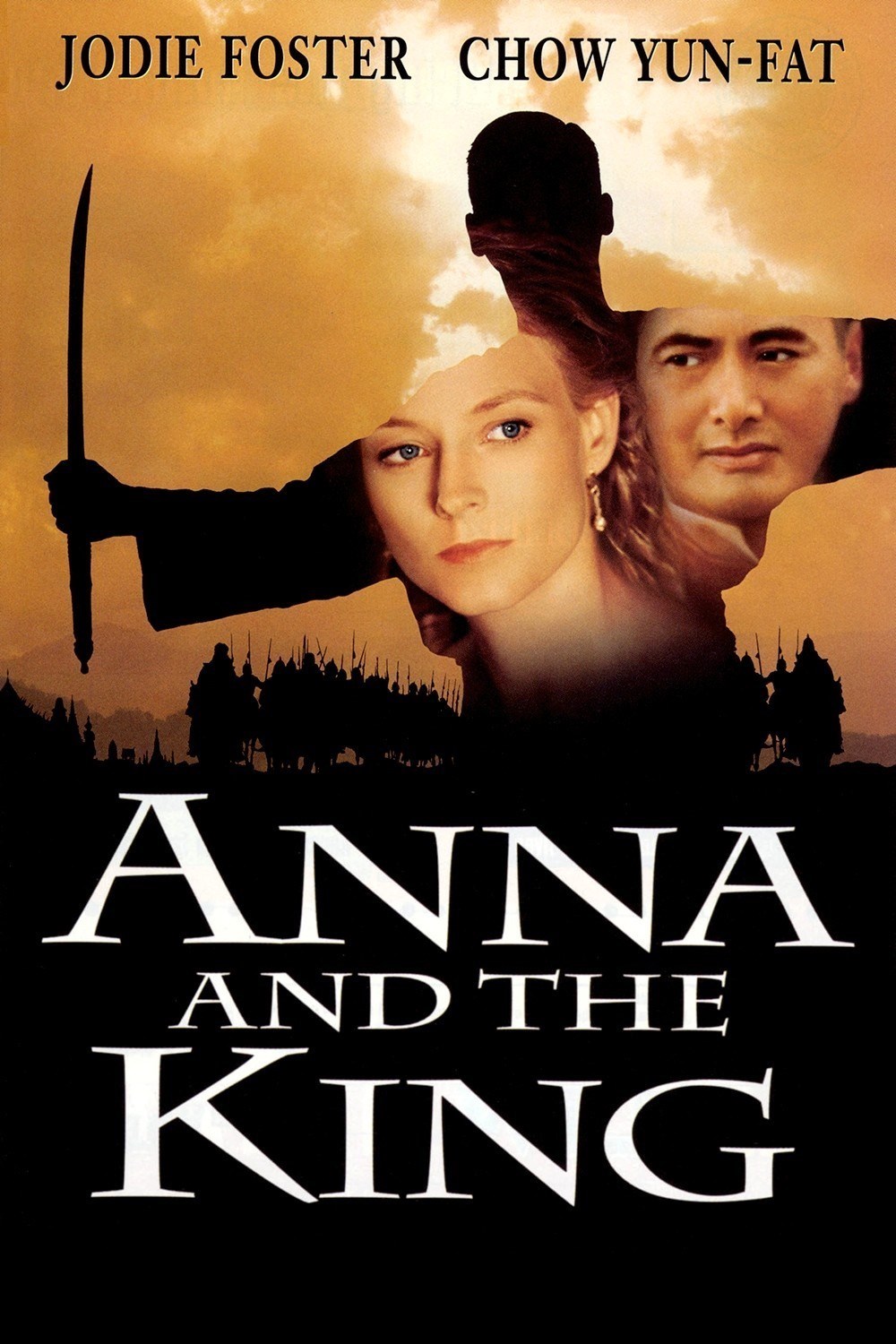Anna Leonowens Whose Heart is Speaking for Her Actions: A Psychoanalytic Approach to Anna and the King Movie
Anna
Leonowens Whose Heart is Speaking for Her Actions
A
Psychoanalytic Approach to Anna and the King Movie
Abstract
Through
the interaction of both the conscious and unconscious working together, humans
shape themselves and their world. This study is aimed to analyze the Id, the
superego, and the ego of Anna Leonowens, the main character of the story. The
researcher uses psychoanalytic approach of Freud’s later version of the
topographic model, the tripartite model. The sources of the data are taken from
Anna and The King movie released in 1999. The researcher collects the data by
watching the movie and analyzing Anna’s actions that show and support the tripartite
model of human psyche. The researcher found data and narrowed it down to one
conclusion, which is that Anna acts based on what her heart tells her, and
being a governess shapes her to be accustomed to using common sense and
knowledge she has in order to be a good example for her pupils.
Introduction
The part of our minds over which we have seemingly little control: the unconscious. The founding father of psychoanalysis Sigmund Freud publication of The Interpretation of Dreams in 1900, Freud lays the foundation for a new model of how our minds operate. Through the interaction of both the conscious and unconscious working together, we shape ourselves and our world.
The most famous model of the human psyche is Freud’s later version of the topographic model, the tripartite model. This model divides the psyche into three parts: the id, the superego, and the ego. The irrational, instinctual, unknown, and unconscious part of the psyche Freud calls the id. The id wishes only to fulfill the urges of the pleasure principle. The id operates on impulse, wanting immediate satisfaction for all its instinctual desires. The second part of the psyche, the superego, acts as internal censor, causing us to make moral judgments in light of social pressures. The third part of the psyche Freud calls the ego, the rational, logical waking part of the mind. The ego operates in harmony with the reality principle. It is the ego’s job to regulate the instinctual desires of the id and allow these desires to be released in some nondestructive way. It is left to the ego to mediate between the instinctual desires of the id and the demands of social pressure issued by the superego.
Anna
and the King is a 1999 American biographical period drama film directed
by Andy Tennant, from a screenplay
written by Steve Meerson and Peter Krikes. Loosely based on the
1944 novel Anna and the King of
Siam,
which give a fictionalized account
of the diaries of Anna Leonowens. The story concerns Anna Leonowens, an English
school teacher in Siam,
in the late 19th century, who becomes the teacher of King Mongkut's many
children and wives.
Discussion
Anna
Leonowens is a British widow who has come to Siam with her son Louis to teach
English to the dozens of children of King Mongkut. She is a strong-willed,
intelligent, valiant and benevolent woman for her time, and this pleases the
King. Anna’s strong-willed and benevolent is causing her to interfere on other
people’s businesses, and it irks the King most of the time. Anna is just doing
things she wants and has to do.
The
researcher finds four actions rising from Anna’s unconscious part of mind
wanting an immediate satisfaction.
First,
when she arrives in Siam, she soon demands a house outside the palace for
living. It is for the sake of her and the family’s convenience. She is so
persistent about the matter. She even goes straight up to King Mongkut for him
to grant her request. Her superego tells her that she still needs to ask for
the King’s approval. Since the king is declined her request, she has no other
options than to live inside the palace for a while, waiting for the King to
change his decision.
Secondly,
when she stays late with Prince Chulalangkorn after the prince’s punishment,
she hears an awful and sorrowful scream from some place. She immediately
follows the sound and finds a slave chained and crying. She brings the matter
to the prime minister and the king. She wants to set free the slave of Jao Jom
Manda Ung who has been chained for six weeks just because of the accusation of
being ingratitude from buying her freedom. It is the fact that Jao Jom Manda
Ung as the slave’s mistress is from an influential family that it gets in
Anna’s way from doing so. Yet eventually, Anna listens to her common sense
more. She decides to buy the slave’s freedom with her wedding ring, then sets
the slave free.
Third,
Tuptim, the king’s latest concubine, becomes Anna’s close friend in the palace.
Tuptim was already engaged to marry another man, Khun Phra Balat, when she was
brought to palace. Mongkut is kind to her, but Tuptim yearns for her true love.
She disguises herself as a young man and runs away, joining the monastery where
her former fiancé lives. She is tracked down, returned to the palace, and put
on trial where she is caned. Anna, unable to bear the sight, wants to help and
save Tuptim from the irrational and judgmental court. From Anna’s point of
view, Tuptim is not guilty because she is just looking for her happiness in
love life. But the reality does not go hand in hand with her perception. The
law and customs of Siam and hierarchy, that the king has to save his face in
front of public, are two reasons on why Anna cannot save Tuptim from the death
punishment set by the court. In the end, Anna does not do something. She can
only cry and be angry at herself.
Lastly,
General Alak, a military advisor, becomes a traitor. He summons and readies
troops to invade Siam, kill King Mongkut and all his children as revenge. King
Mongkut creates a ruse that a white elephant has been spotted, and
the court must go to see it. This allows him to flee the palace with his
children and wives, and give his armies time to reach them. Anna, who already
arrives at the port to go to Newcastle, returns to help King Mongkut. Mongkut
plans to take his family to a monastery. Halfway through the journey they see
Alak's army in the distance and realize they can't outrun him. Before King
Mongkut going with his soldiers, he ordered Prince Chulalangkorn to take all
royal family to the monastery without him. Sensing something wrong, Anna makes
the king promised to return safely. King Mongkut and his soldiers go away and
set explosives on a wooden bridge high above a canyon floor as Alak
and his army approach. Anna’s heart tells her to stay and wait for the king to
get back safely from the bombing plan at the bridge. She also feels an urge to
plan of something to help him. Prince Chulalangkorn has been ordered to
continue the journey to monastery, and Anna has to follow the prince as the
order is from the king. Yet, she breaks the order and helps the king with her
smart trick. Anna and Louis create a brilliant deception from their hiding spot
in the forest. Louis uses his horn to replicate the sound of a bugle
charge, as Anna "attacks" the area with harmless fireworks. The
Burmese, believing the King has brought British soldiers, panic and retreat.
Alak is left alone by his troops, and the king’s soldier blows him up along
with the bridge. Anna’s trick saves the king, and she is grateful to follow her
heart than the king’s order.
Conclusion
From
the four data above, the researcher comes to a conclusion that Anna acts based
on what her heart tells her, and being a governess shapes her to be accustomed
to using common sense and knowledge she has in order to be a good example for
her pupils. Chulalangkorn, the oldest son of King Mongkut and Anna’s pupil,
later becomes the king of Siam. Learning a lot from Anna’s wisdom, he
successfully maintained Siam’s independence, abolished slavery, instituted
religious freedom, and reformed the judicial system.
Author:
Arum Ratnaning Ratri
2211416050
English Literature 2016
Universitas Negeri Semarang
For subject:
Literary Criticism (405)
2211416050
English Literature 2016
Universitas Negeri Semarang
For subject:
Literary Criticism (405)


Komentar
Posting Komentar